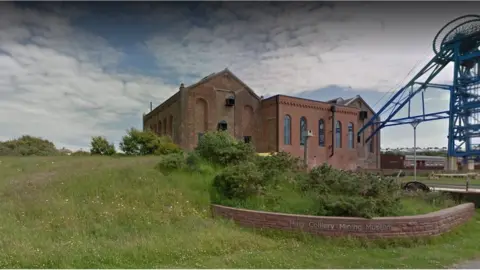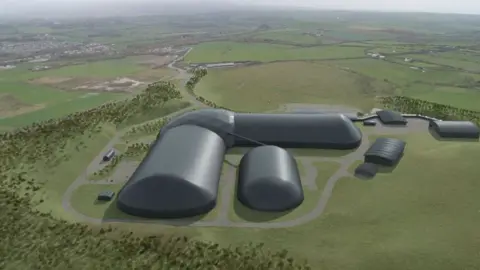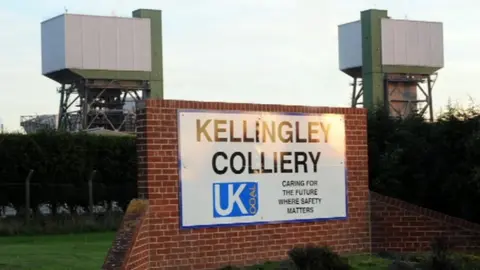Whitehaven deep coal mine plan moves step closer
 Google
GoogleThe first new deep coal mine in the UK for decades has moved a step closer after councillors unanimously backed the plans.
The West Cumbria Mining Company wants to mine next to the site of the former colliery in Whitehaven that shut three decades ago.
The Woodhouse Colliery could create 500 jobs, but objectors have said mining will contribute to global warming.
Some objectors staged a sit in on the floor of the council chamber.
The Haig Pit in Whitehaven was shut in 1986 after 70 years with the loss of 3,500 jobs.
West Cumbria Mining wants to extract coking coal from the seabed off St Bees, with a processing plant on the former Marchon site at Kells.
 West Cumbria Mining Company
West Cumbria Mining CompanyThe last deep mine in the UK, Kellingley Colliery in North Yorkshire, shut in 2016.
A meeting of Cumbria County Council's planning committee heard from several climate change experts and environmental activists who urged members to reject the proposals.
Speakers also warned the council they could expect a legal challenge to the scheme.
Dr Henry Adams, of South Lakes Action on Climate Change, said the scheme would "totally undermine" Cumbria's chances of hitting emission targets.
But other speakers including, the Mayor of Copeland Mike Starkie and councillor Chris Whiteside, spoke of the "desperate" need for jobs, particularly in deprived wards close to the proposed new mine.
Finishing his speech to a chorus of boos, Mr Starkie said: "I do not agree at all with the sensationalised views of the opposition groups who seem to be intent on trying to stop future opportunities for the people of West Cumbria."
Mark Kirkbride, chief executive of West Cumbria Mining, told the Local Democracy Reporting Service, that the mine would be a "good neighbour" and was committed to creating jobs.
He said that the demand for steel, for which the coking coal is needed, was expected to grow "significantly" over the next 50 years.
The mining firm believes there could be up to 750m tonnes of coal available in a 75 sq mile area around the colliery.
 Julie Cush
Julie Cush
